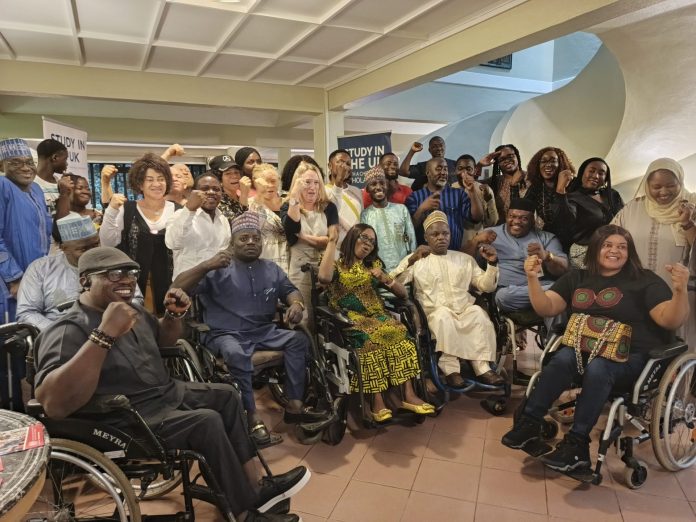In a significant step toward advancing disability inclusion in Nigeria, the British High Commission on Thursday organized a workshop aimed at empowering persons with disabilities with the knowledge and tools to successfully apply for the prestigious Chevening Scholarship. The event, held at the British High Commissioner’s residence in Maitama, Abuja, is part of the UK Foreign, Commonwealth and Development Office’s (FCDO) ongoing efforts to enhance disability inclusion in Nigeria.
The workshop brought together key leaders and influential figures from Nigeria’s disability community, including the Executive Secretary of the National Commission for Persons with Disabilities (NCPWD), Chief Ayuba Gufwan, Comrade Chris Obiora Agbo representing the Joint National Association of Persons with Disabilities (JONAPWD), Nike Akinola, Head of the Gender Unit at NCPWD, Paul Ihekwuaba from GlobalHope, and Chevening Scholars from the disability community such as renowned Dr. Israel Balogun and Dr. Adebukola Adebayo.
Fostering Inclusion Through Education
The Executive Secretary of NCPWD, Chief Ayuba Gufwan, in his goodwill message, praised the British High Commission for their commitment to advancing disability inclusion in Nigeria. He stressed the importance of education in transforming the lives of persons with disabilities, particularly through opportunities like the Chevening Scholarship.
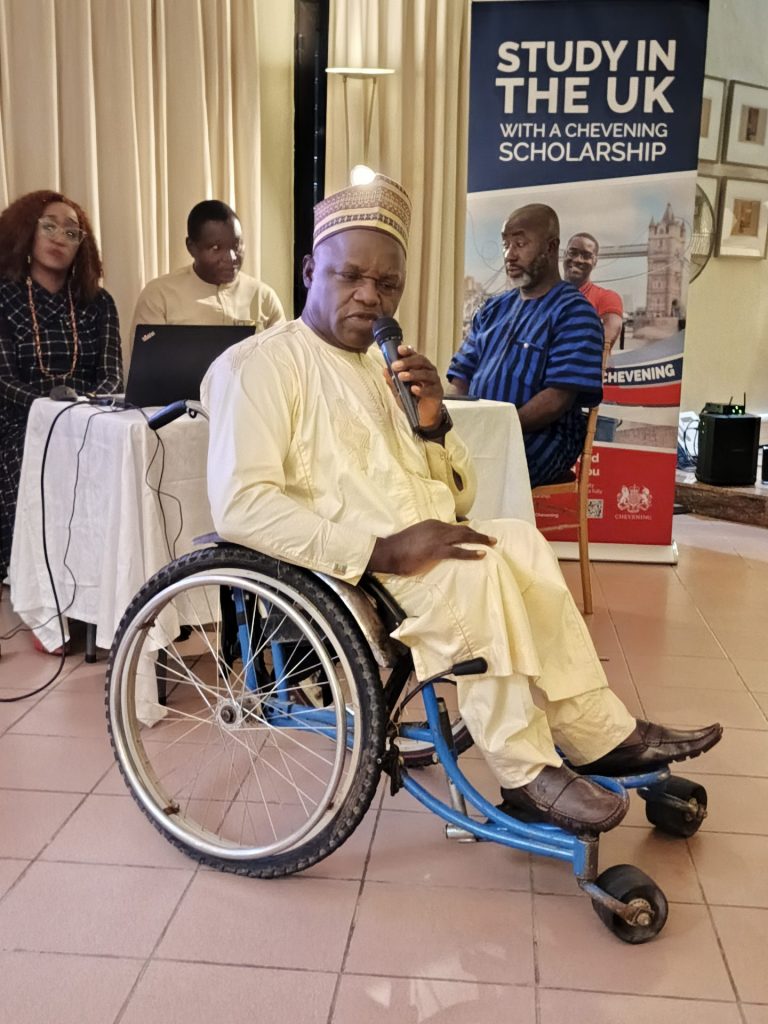
“On behalf of the government of Nigeria, I extend greetings and gratitude to the British government for their efforts to enhance inclusion in our country,” Chief Gufwan said. He further added, “As the leader of the National Commission for Persons with Disabilities, we are pleased with the mainstreaming of Disability Inclusion across both Chevening and Commonwealth Scholarships here in Nigeria. We look forward to seeing more persons with disabilities securing these prestigious scholarships in the near future.”
While acknowledging the strides made in promoting disability inclusion, Chief Gufwan called for more to be done in addressing the persistent challenges faced by persons with disabilities in accessing education and other opportunities. He noted that despite the positive developments, many barriers still exist, including societal attitudes, limited access to resources, and infrastructural challenges.
Chevening Scholars Share Their Experiences
A key highlight of the event was the testimonial shared by Chevening alum Dr. Israel Balogun, who spoke about his journey as a scholar with a disability. Dr. Balogun, who has made significant contributions as a global leader, credited the Chevening scholarship with transforming his life and opening doors to new opportunities.
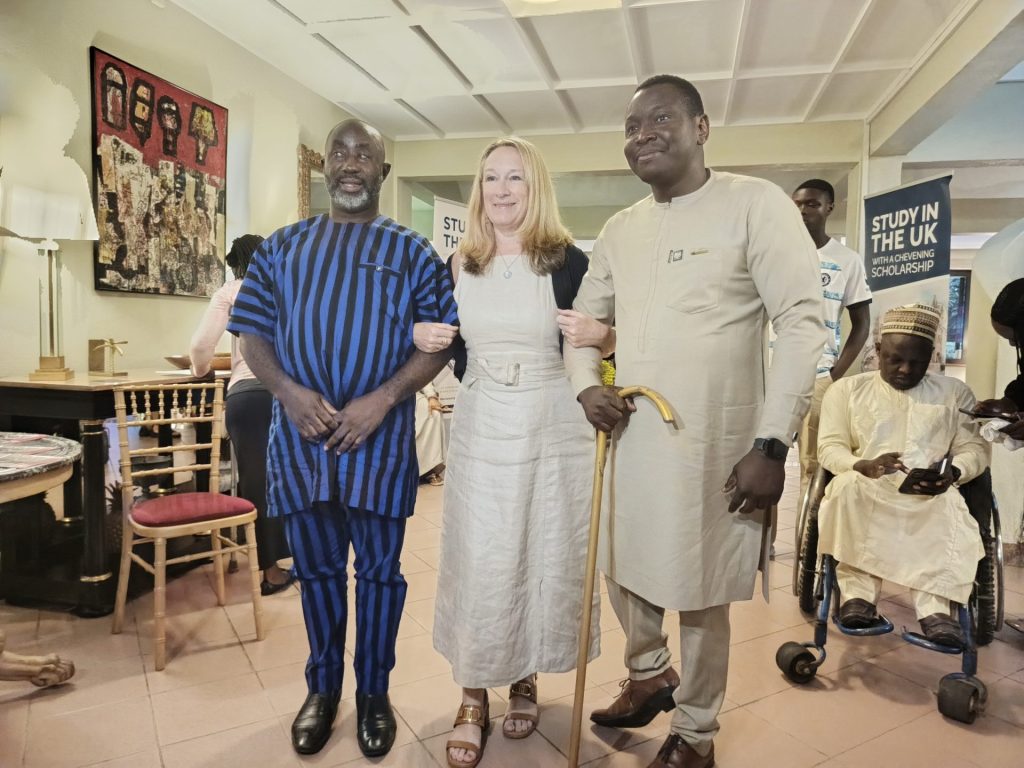
“Studying in the UK through the Chevening and Commonwealth Scholarships has transformed me into a global leader. The Chevening scholarship gave me the opportunity of a lifetime to become an impact-maker on a global scale,” Dr. Balogun shared. He also highlighted the helpful adjustments and accommodations provided to him during his studies in the UK, encouraging potential candidates to leverage these opportunities in their chosen universities.
“The support I received in the UK as a Chevening scholar was exceptional, and I hope that more persons with disabilities will take advantage of this life-changing opportunity,” Dr. Balogun said, underscoring the importance of inclusive education for persons with disabilities.
The Role of the British High Commission in Promoting Equal Access
Speaking at the event, British Deputy High Commissioner, Mrs. Gill Lever, reaffirmed the UK government’s commitment to providing equal access to opportunities for all, including persons with disabilities. She emphasized that the UK remains a champion of disability inclusion and is dedicated to ensuring that educational platforms like the Chevening Scholarship are accessible to all.
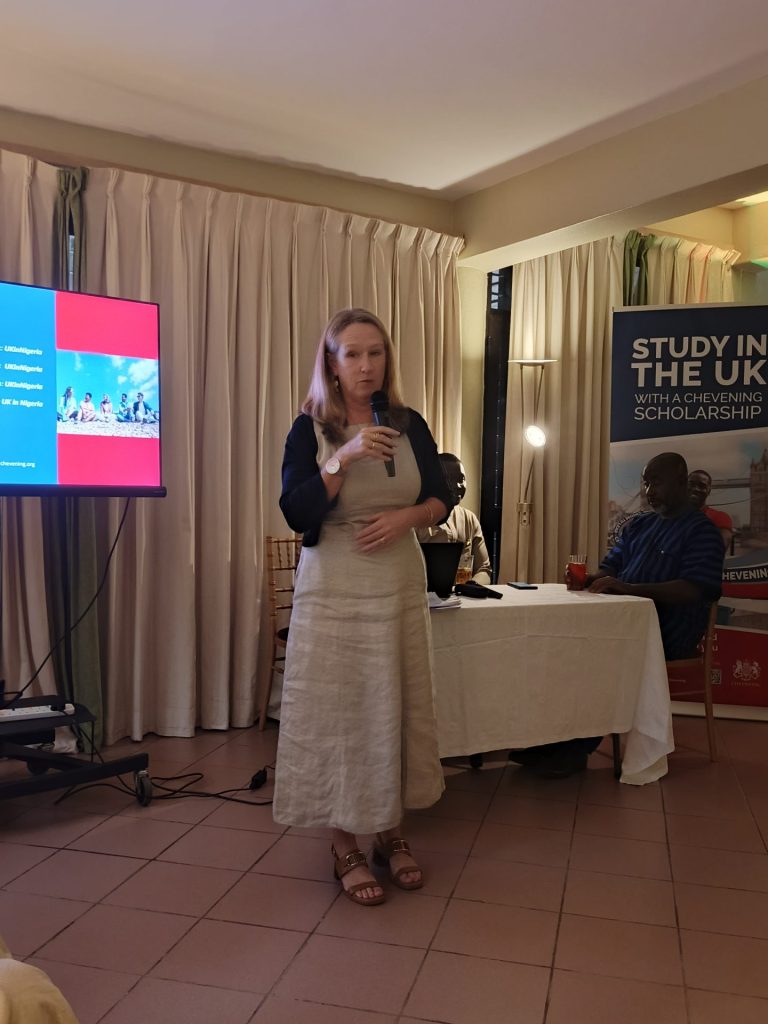
“We know that persons with disabilities face a range of challenges, but ensuring genuine inclusion and support can make all the difference,” Mrs. Lever stated. “The UK champions opportunities like the Chevening award, which offers equal access to education for some of the brightest minds, allowing them to study, meet their passions, and bring their skills and experiences back to Nigeria.”
Mrs. Lever further encouraged those in attendance to apply for the Chevening Scholarship, reminding them of the open application period from August 5 to November 5, 2024. She expressed optimism about seeing more persons with disabilities among the next cohort of Chevening scholars.
A Commitment to Diversity and Equality
Oluwafunmilayo Ladepo, Chevening Programme Officer, also spoke at the event, reiterating Chevening’s commitment to diversity and inclusion. She assured attendees that Chevening is an equal-opportunity program, free from discrimination based on sex, gender, sexual orientation, race, ethnicity, disability, religion, or age.
“We aim to attract a diverse range of applicants, and there is no room for discrimination of any kind,” Ladepo said. “I hope that today’s workshop will inspire many of the candidates here to apply for the award and succeed in becoming the next generation of leaders.”
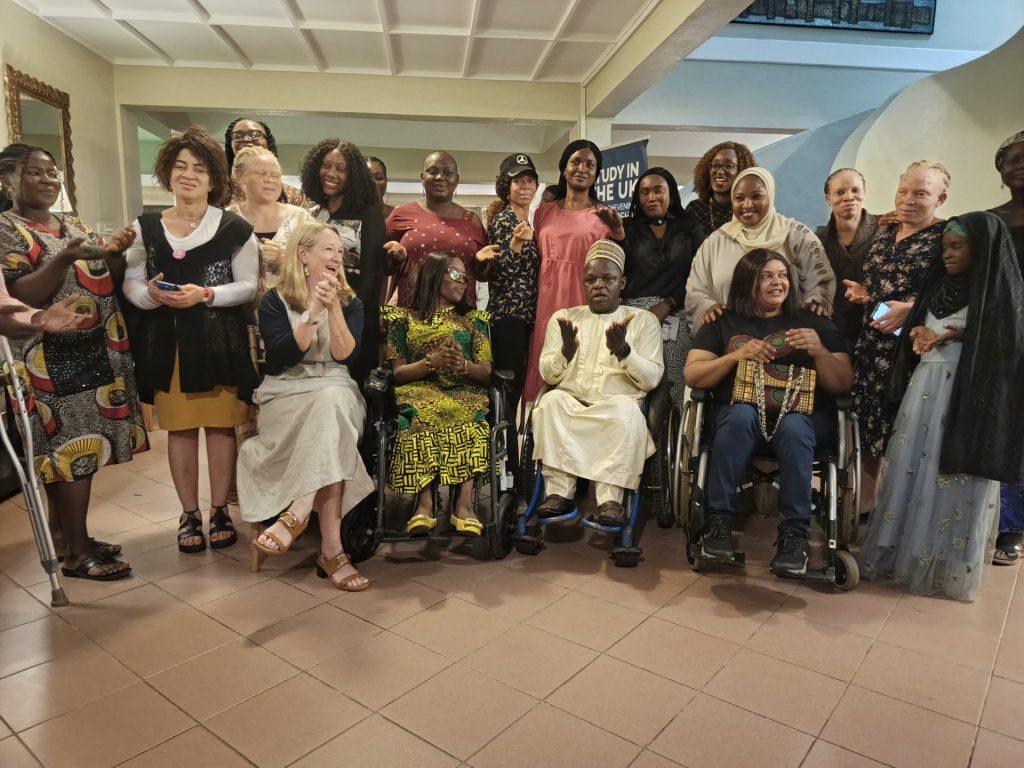
The event concluded with a renewed sense of hope and determination as participants were encouraged to pursue the opportunity to study in the UK. The workshop not only provided practical information about the application process but also served as a platform to celebrate the successes of those who have walked the path before and are now making a significant impact in their communities.
As the UK continues its efforts to champion disability inclusion in Nigeria, the workshop was a testament to the transformative power of education and the important role it plays in empowering persons with disabilities to achieve their full potential.
Conclusion
The British High Commission’s workshop on the Chevening Scholarship for persons with disabilities marked a crucial step in bridging the gap between accessibility and opportunity for Nigeria’s disability community. With leaders from across the disability sector and Chevening alumni sharing their experiences and insights, the event reinforced the importance of education as a tool for empowerment and global leadership. As more persons with disabilities take advantage of these opportunities, the future looks bright for inclusive education and leadership in Nigeria.

